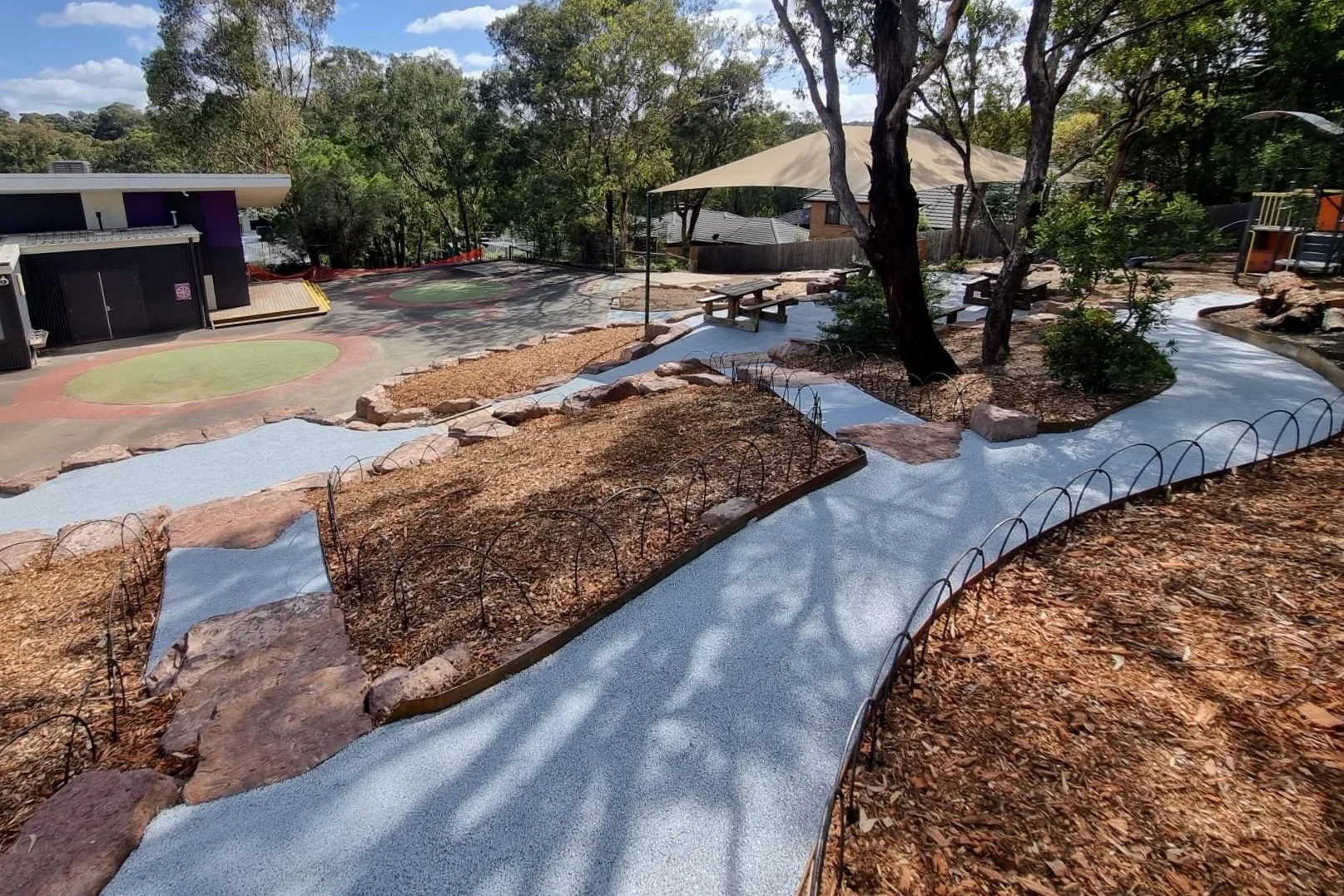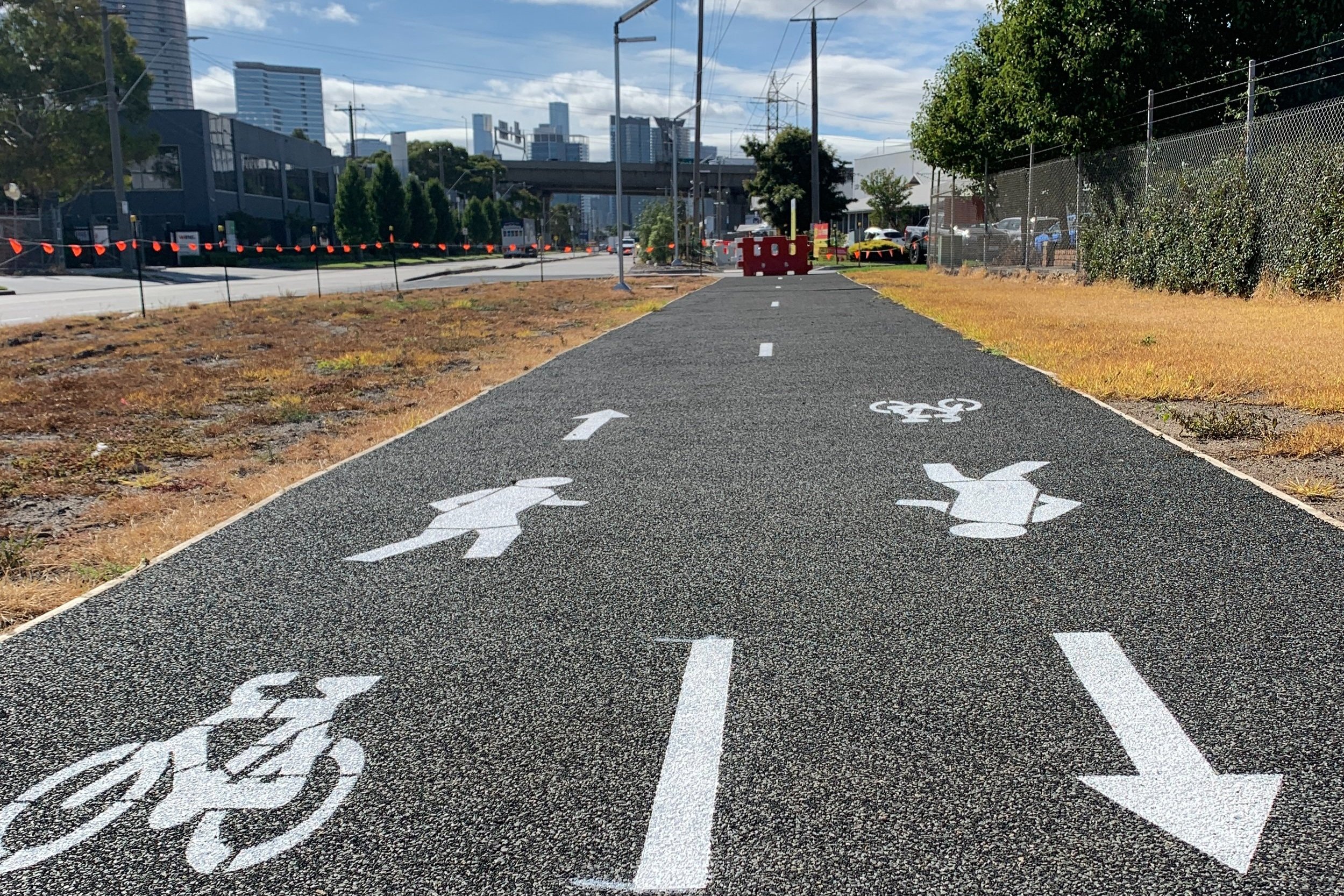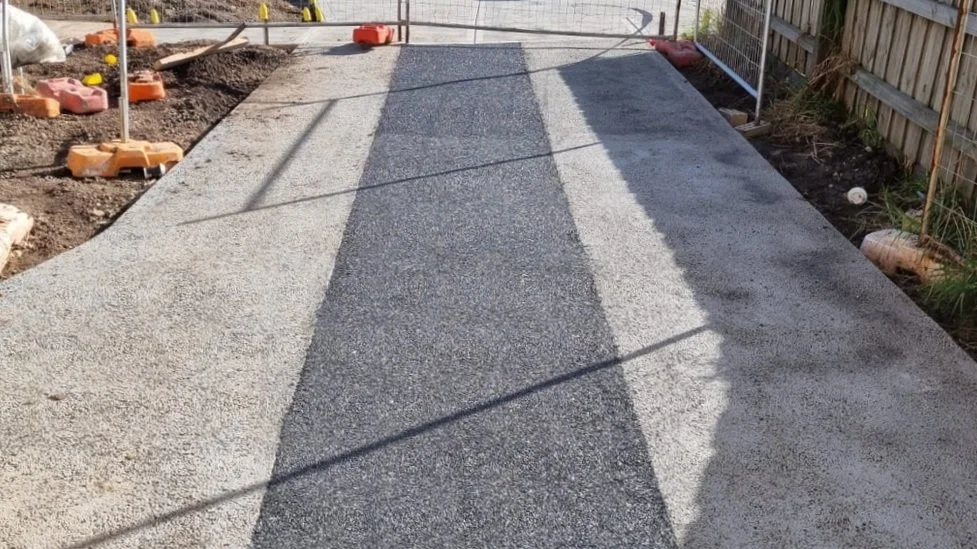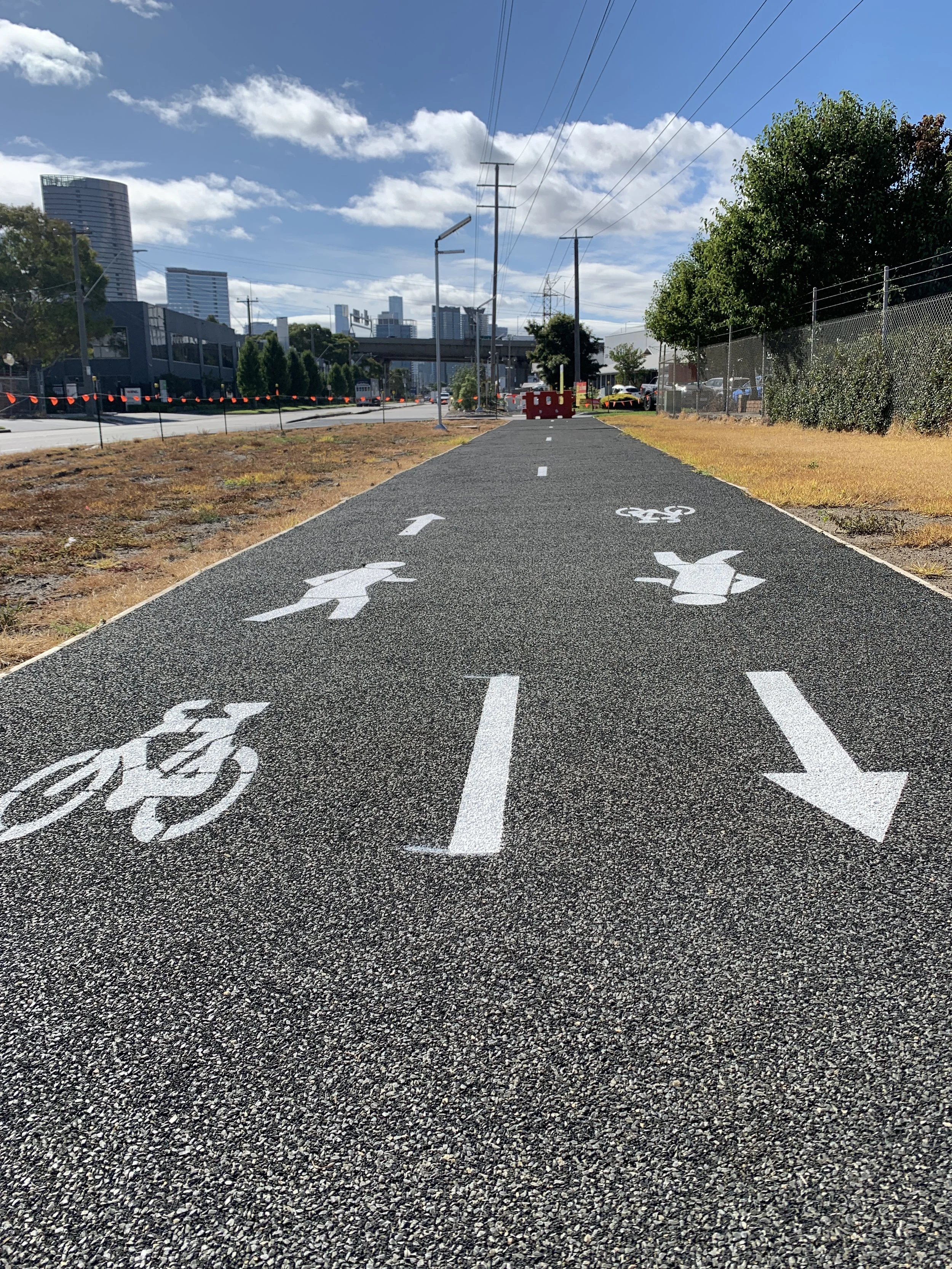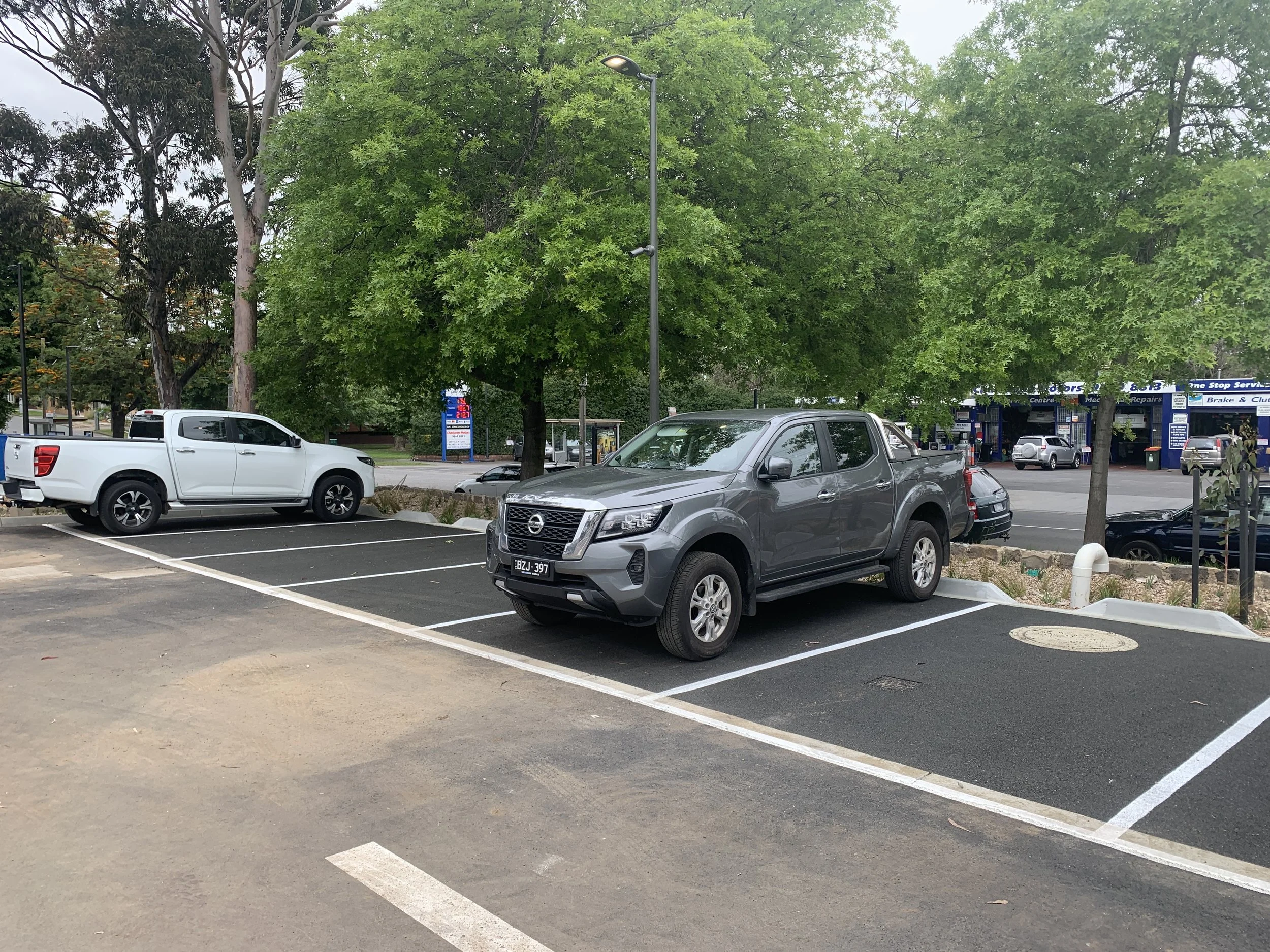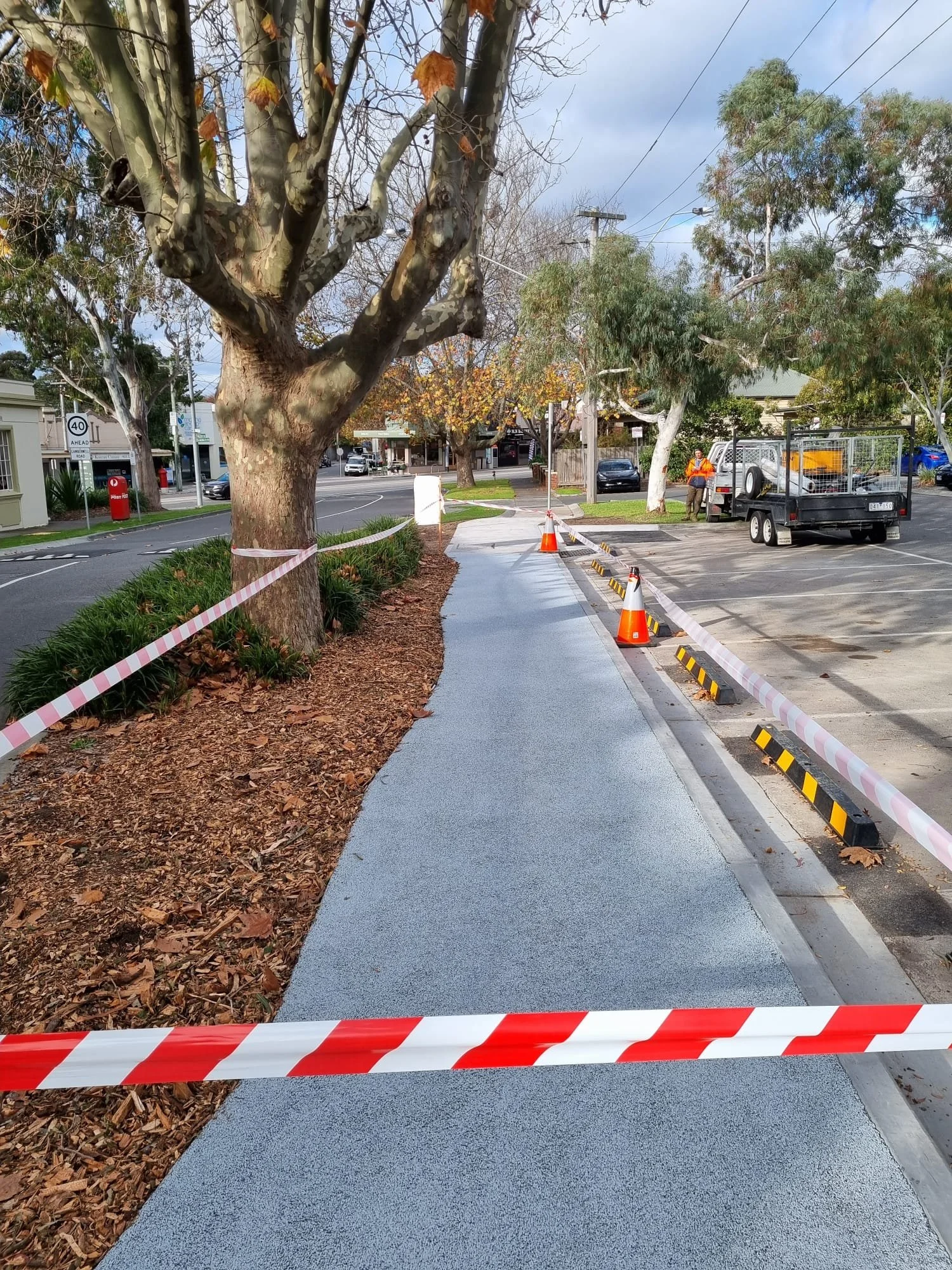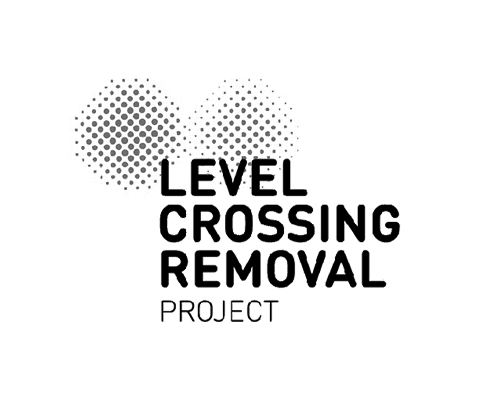
High-performance permeability demonstrated!
This is our permeable pavement sample to demonstrate the permeability of Porous Lane! With this sample you can experience the permeability of the material yourself. You just have to pour water into the cavity, as shown in the video as well.
Tip: we advise you to do that above a sink, because it is very permeable.
See how easily water flows through the Porous Lane material!
ps. the demonstration sample does not represent the strength of the material.
The new standard for permeable pavement
At Porous Lane, we are driven by a future of healthy waterways, cooler cities and circular economy led sustainability.
Porous Lane is an innovative company developed out of Melbourne University research and is a high-performance solution that addresses multiple issues key to the health of our cities in a setting of more frequent flash flooding and higher temperatures.
High-performance attributes
Porous Lane permeable pavement has quite remarkable properties, is made from up to 60% recycled tyre material and can be used in a number of applications for stormwater management, urban tree health and reducing the heat of paved surfaces.
Product applications
Porous Lane is very effective for usage in various of applications in low lying areas or close to large trees where a reduction in runoff or passive irrigation is desired. Porous Lane is able to trafficable and non-trafficable applications, including:
Carparks
Access Lanes
Driveways
Tree surrounds
Footpaths
Bike Lines / Shared Paths
Nature Strips
Other Paved areas
Benefits of using Porous Lane
Stormwater runoff & flash flooding – the surface is around 8x more permeable than the international standard (3.0-3.5cm/s), reducing run-off & increasing stormwater harvesting.
On-site detention - we provide a cost-effective system for increasing site permeability, stormwater management and on-site detention.
More effective irrigation of urban trees - permeability encourages tree roots to grow down rather than seeking condensation along the underside of impermeable surfaces. It also allows water to easily get to tree roots and stimulates urban tree establishment.
Highly crack resistant– the flexibility and strength of the material means substantially reduced risk of cracking from settling or tree root movement, improving infrastructure longevity around urban trees and reducing long-term maintenance/repair costs.
Reduces urban heat island effects – the surface temperature is up to 3-4 degrees cooler than non-permeable surfaces.
Significant reduction of carbon footprint - compared to concrete (up to 79%) and asphalt (up to 45%) alternatives, depending on the application.
Stormwater treatment - it filters pollutants in run-off including nitrates, phosphates, heavy metals and total suspended solids
Up to 60% waste tyre content - with recycling these tyres, Porous Lane takes a problematic waste stream and diverts it to a high-performance, long-lasting product, that otherwise would end in landfill.
Higher compressive strength than asphalt
25 Year Design Life - extensive testing has been conducted to ensure a 25-year design life
Low Maintenance - We recommend sweeping every 6-12 months to maintain permeability. However, testing has shown minimal reduction in permeability over at least two years without any maintenance.
Stay in the loop
Integrated Stormwater Management
Reduction & Treatment of Run-off
Water Sensitive Urban Design
Highly Crack-Resistant Surfaces
On-Site Detention
Trafficable & Resiliant
Reduce Urban Heat Islands
Low Maintenance
Passive Irrigation & Urban tree health
Certified Circular Economy
Up to 60% Waste Tyre Content
25 Year Design Life
A Porous Lane carpark example project installed for the City of Glen Eira. Play the video to learn more about this project.
Who we work with
Local Government / Councils
State Government/ Major Projects
Developers
Builders
Architects
Landscape Architects
Civil Engineers
Civil Contractors
Landscaping Contractors
Body Corporates
Homeowners
Projects
Find out more about our projects in various applications.
Porous Lane Typical Drawings
Please note these drawings are typical or indicative only and may be subject to change depending on the specific requirements of the installation.
Porous Lane Typical Footpath Profile
Porous Lane Typical Bike Lane/Shared Path Profile
Porous Lane Typical Nature Strip Profile
Porous Lane Typical Driveway Profile
Porous Lane Typical Car Park Profile
Porous Lane Permeable Kerb and Channel Profile
For CAD drawings, please contact sales@porouslane.com.au
Download our Brochure
In our brochure you will find more information on the benefits, the different applications, and project examples.
The brochure will appear on screen after entering your details.
Selected Clients & Partners




